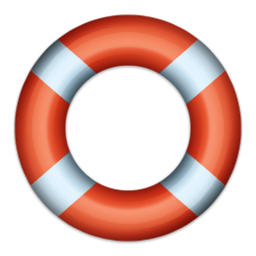 Whether from the upsurge of "exotic" diseases popping up in the developed world, or a general curiosity in alternative medical careers, interest in Tropical Medicine appears to be growing. At our ExpedMed conferences on Expedition and Wilderness Medicine I am consistently approached by physicians who are interested in learning even more about Tropical Medicine and/or careers in tropical health.
Whether from the upsurge of "exotic" diseases popping up in the developed world, or a general curiosity in alternative medical careers, interest in Tropical Medicine appears to be growing. At our ExpedMed conferences on Expedition and Wilderness Medicine I am consistently approached by physicians who are interested in learning even more about Tropical Medicine and/or careers in tropical health.
There are a variety of ways a physician can obtain training in Tropical Medicine. For most, an intensive four or five day CME conference like our ExpedMed events will suffice. However, for those who want to go even deeper into the world of Tropical Medicine, the next step is earning the Diploma of Tropical Medicine & Hygiene (DTM&H).
The DTM&H is a certification program endorsed by the American Society of Tropical Medicine & Hygiene (ASTM&H). Diploma recipients must receive didactic training in Tropical Medicine from an ASTM&H approved course and then successfully pass a test of knowledge administered by the ASTM&H.
Currently, there are 18 approved diploma courses around the world. A full list of the approved courses can be seen here. However, while all the courses are good, two continue to set themselves apart in terms of prestige and the endorsements I hear among those who practice Tropical Medicine as a career focus: the annual course at the London School of Hygiene & Tropical Medicine and The Gorgas Course in Clinical Tropical Medicine .
The Diploma in Tropical Medicine & Hygiene course at the London School of Hygiene and Tropical Medicine begins each January and runs until March and costs approximately $7,700 to attend. The course is limited to 70 students who rotate between lectures and clinical exposure in the Hospital for Tropical Diseases where tropical medicine cases are seen. The London School of Hygiene and Tropical Medicine has been been at the forefront of of integrated medical education for over 100 years and is recognized world-wide as a leader in Tropical Medicine education. Students can expect a broad exposure to tropical disease taught by experts from around the world.
The only drawbacks to the London program that I have heard relate to the city of London itself. First, the expense of living in London can be prohibitive for some due to the cost of transportation and living expenses in the city. Also, since the course takes place in a developed city, I have heard some reports that the clinical exposure can be hit or miss since it is dependent on what cases are available. However, participants still give the program overwhelmingly glowing reviews and everyone I spoke to said they would wholeheartedly recommend the course to interested peers.
The Gorgas course is directed by Dr. David O. Freedman of the University of Alabama-Birmingham. The Gorgas course is also run each spring and is based in Lima, Peru. Participants live in Lima for the duration of the 3 month program. While the Gorgas course does not have the long history of the London program, it is famous for the quality of its clinical exposure and past participants raved to me about the incredible breadth and depth of cases they examined and treated. Students rotate between classroom work and rounds in the Instituto de Medicina Tropical (Institute of Tropical Medicine). Two field trips are included in the curriculum- a trip to high altitude in Cusco, and a trip into the Amazon jungle.
From all accounts, the teaching at the Gorgas course is superb and the clinical exposure unparalleled. The only drawback to the Gorgas course is the limited number of positions offered each year. Only 30 positions are available and applicants come from all over the world. The application process takes place over a year before the course begins, so application in the fall of 2009 is for a position in the 2011 class. The cost currently is $6,395 which includes flights within Peru and accommodations on both field trips.
One of the benefits of both courses is the network of peers a participant develops during the durations of their studies. Since both courses draw students from around the world, past participants tell me that one of their biggest enjoyments was learning from their peers and kindling friendships with individuals who live on the other side of the globe. The Gorgas course even has a Facebook group for its graduates, and both courses have distinguished faculty and supportive alumni networks.
Our ExpedMed faculty has ties to both programs. Dr. Michael Callahan and Dr. David Townes are both graduates of the London course, while Dr. David Warrell and Dr. Alan Magill teach at the Gorgas course.
In sum, for those interested in further training in Tropical Medicine, there are numerous resources available. If you are not sure if Tropical Medicine is for you, try attending one of our ExpedMed events where you will get 3-5 days of Tropical Medicine from some of the premiere lecturers in the world. After attending one of our events you will not only have a much better grasp of Tropical Medicine, but you will feel more confident deciding whether the investment of time and resources for one of the more intensive programs is right for you.
 I wanted to recommend a book that I have been reading entitled The Physician's Guide to Investing by Dr. Robert M. Doroghazi.
I wanted to recommend a book that I have been reading entitled The Physician's Guide to Investing by Dr. Robert M. Doroghazi.




 Post a Comment
Post a Comment




